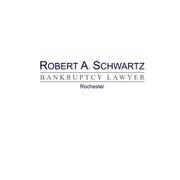
Even the most fiscally responsible person can have unexpected debts that they are unable to pay. Medical bills, in particular, can quickly increase in costs—an ambulance ride alone can accumulate up to $1,000. What many people don‘t know, however, is that medical debt can be discharged through bankruptcy. Below are frequently asked questions regarding medical debt.
Common Medical Debt Questions
Shouldn’t medical insurance cover bills?
 Different insurance plans cover diverse types and amounts of healthcare expenses. Usually, the insurer sends an explanation of benefits alongside the bill. Use this to verify any out-of-pocket expenses listed. If a particular medical treatment isn’t covered, you’re responsible for paying the costs.
Different insurance plans cover diverse types and amounts of healthcare expenses. Usually, the insurer sends an explanation of benefits alongside the bill. Use this to verify any out-of-pocket expenses listed. If a particular medical treatment isn’t covered, you’re responsible for paying the costs.
When do medical bills get sent to collections?
Set up a payment plan with your healthcare provider and obtain a written copy. As long as the minimum monthly payments are made on time, there should be no issues. Make too-small or late payments, however, and the provider may contact a collections agency.
How does medical debt impact credit reports?
The Medical Debt Relief Act asserts that if an unpaid medical bill does go to a collections agency, the consumer must be notified. They then have 180 days to pay the account before it may be reported to credit bureaus. Once the medical collection has been paid, the debt must be removed from credit reports within 45 days.
When is bankruptcy the right option?
If the consumer is unable to pay the medical debt and it goes on to credit bureaus, their credit rating will be impacted. The longer this drags on, the more stressful and situation will get. While bankruptcy likewise impacts credit reports, sometimes a proactive filing is the best way to clear medical debts and gain a fresh start.
Robert A. Schwartz of Rochester, NY, has more than 30 years of experience using bankruptcy to help clients get out of healthcare debt. This debt relief lawyer handles both personal and business bankruptcy and is licensed to practice in all New York courts as well as before the state’s Federal Bankruptcy Court for the Western District. Learn about his other practice areas such as real estate law on his website. Schedule a meeting by calling (585) 334-4270.
About the Business
Have a question? Ask the experts!
Send your question

